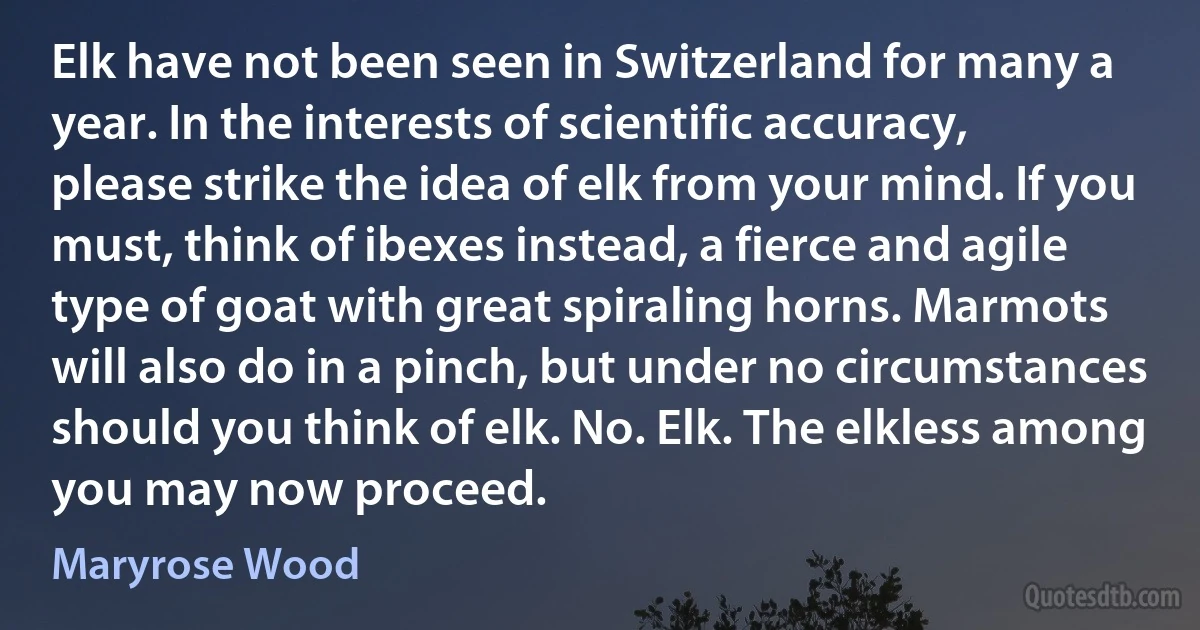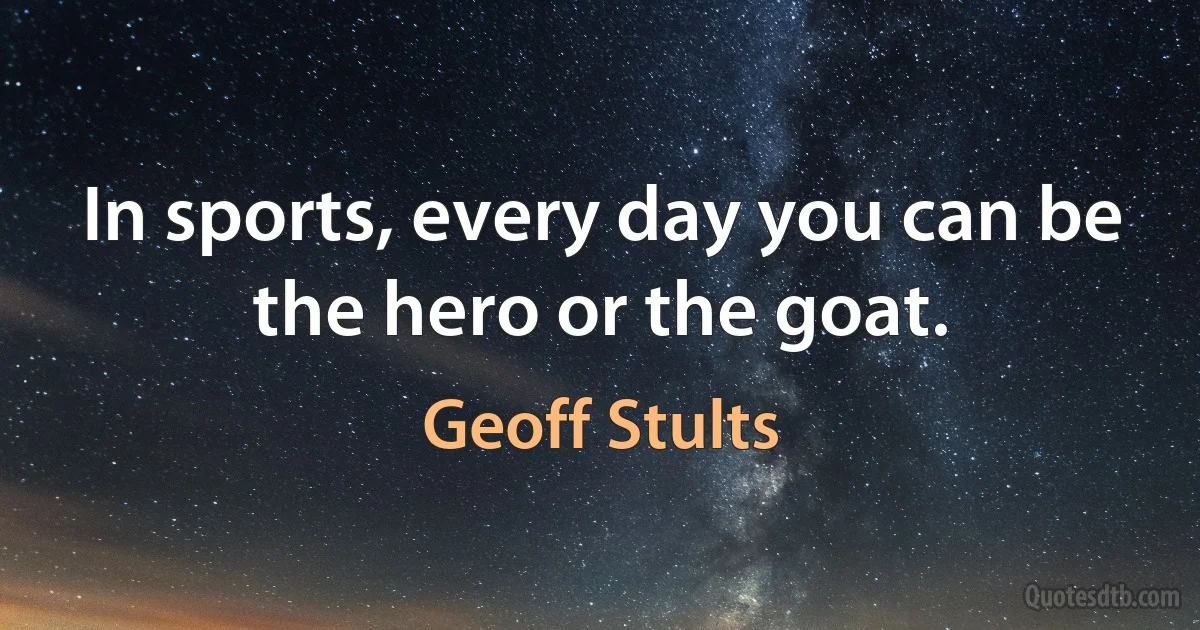Goat Quotes - page 2
The Apostles were put to death; they were hunted from nation to nation; they wandered about in sheep skins and goat skins in the dens and caves of the earth, of whom the world was unworthy. Their followers were put to death by hundreds, by thousands, by tens of thousands; and after a while there sprang up a people that pretended to be Christians--followers of the meek and lowly Jesus, having no apostles, no inspired men, no revelation, no ministration of angels, none of the characteristics, except a few forms, of the Christian Church as it existed in the first century of the Christian era. This class of men, calling themselves Christian, uniting with the various forms of the pagan religion, adopting many of their ceremonies and institutions, became very popular, and finally some of the pagans embraced Christianity and were placed, as it were, upon the throne, and what they termed Christianity became very popular indeed.

Orson Pratt
I drive out to this quail farm, where I get a lot of these incredible quail eggs, which I eat all day long. And I eat a lot of superfoods like goji, cacao and chia seeds, things like that. And I like unpasteurised milk of the goat and the sheep. They send it once a week from Pennsylvania, from the Amish farms, and I get it in Los Angeles.

Vincent Gallo
The second and third Empires, represented by the Bear and Leopard, are again represented by the Ram and He-Goat; but with this difference, that the Ram represents the kingdoms of the Medes and Persians from the beginning of the four Empires, and the Goat represents the kingdom of the Greeks to the end of them. By this means, under the type of the Ram and He-Goat, the times of all the four Empires are again described: I lifted up mine eyes, saith Daniel, and saw, and behold there stood before the river [Ulai] a Ram which had two horns, and the two horns were high, but one was higher than the other, and the higher came up last.

Isaac Newton
Likewise, gleefully describing the Hindu predicament under the Sultanate, Amir Khusrau puts this statement into the mouth of a subdued Raja; ‘Thanks to the perennial, well established convention of the world, the Hindu has all along been a game of the Turks. The relationship between the Turk and the Hindu cannot be described better than that the Turk is like a tiger and the Hindu, a deer. It has been a long established rule of the whirling sky that the Hindus exist for the sake of the Turk. Being triumphant over them, whenever the Turk chooses to make an inroad upon them, he catches them, buys them, and sells them at will. Since the Hindu happens to be a (wretched) slave in all respects, none need exercise force on his slave. It does not become one to scowl at a goat which is being reared for one's meals. Why should one wield a sharp sword for one who will die by (just) a fierce look?

Amir Khusrow
When I was a lad in my 20s, as carefree and debonair as any other underpaid newspaperman, I happened to be a golfer who could flirt with par fairly often, and I was adventurous enough in those days to play any known or unknown thief who showed up at Goat Hills for whatever amount he fancied.

Dan Jenkins
It really gets on my goat that people keep quoting Dorothea Mackellar's 'My Country' as proof that there is no such thing as climate change. A poem written more than 100 years ago by a homesick 19 year old versus an ever-increasing body of refereed scientific thought... hmm, hard to know which way to jump, really.

Judy Horacek



